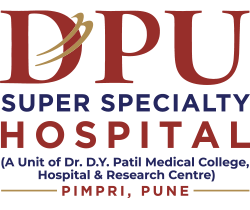The Impact of Lifestyle Choices on Cancer Risk

There’s always been a fair share of mystery around the cause of cancer. Many believe it’s purely down to genetics, but as it turns out, the decisions we make every day—from what we eat to how much we move—can significantly impact our risk of developing this complex disease.
At the best cancer hospital in Pune and other parts of the country, experts emphasise that while genetics play a role, lifestyle choices are a major factor in cancer prevention. In this blog, we’ll explore how simple changes in diet, activity level, and habits can significantly reduce cancer risk.
Diet and Nutrition
What you put on your plate matters more than you might think. A diet rich in fruits, vegetables, whole grains, and lean proteins can boost your body’s natural defences against cancer. Conversely, a diet high in processed foods, red meat, and sugary treats can increase your risk. So, how can you make better dietary choices? Start with these tips:
- Increase Fiber Intake: Foods high in fibre, like oats, beans, and peas, help keep your digestive system running smoothly and reduce cancer risks, particularly in the colon.
- Cut Down on Processed Foods: Processed items often contain unhealthy fats, salts, and sugars. Try to eat more whole, natural foods.
- Choose Healthy Fats: Replace saturated fats found in butter and red meat with healthier alternatives like olive oil and fish, which contain beneficial omega-3 fatty acids.
- Antioxidants are Key: Include plenty of foods rich in antioxidants, like berries, nuts, and green leafy vegetables. These substances can prevent or delay cell damage and help protect against various types of cancer.
Physical Activity
Moving your body isn’t just good for your heart but also critical in cancer prevention. Regular physical activity helps you maintain a healthy weight, reduces inflammation, and can even help to balance hormones that, when unregulated, can increase cancer risk. Consistency is key, whether a daily walk, a yoga session, or a vigorous workout.
Aim for at least 150 minutes of moderate aerobic activity or 75 minutes of vigorous activity each week, as recommended by health experts. Additionally, strength training exercises twice a week can further enhance your muscle strength and boost your metabolism, aiding in cancer prevention.
Avoiding Harmful Habits
Certain habits like smoking, excessive alcohol consumption, and prolonged exposure to the sun can significantly increase your cancer risk. Here’s how you can avoid these pitfalls:
- Quit Smoking: It’s never too late to stop. Quitting smoking is perhaps the single most effective thing you can do for your health.
- Limit Alcohol: Try to limit alcohol intake to one drink per day if you’re a woman and two if you’re a man.
- Protect Your Skin: Use sunscreen with at least SPF 30, wear protective clothing, and avoid the sun during peak hours to protect yourself from skin cancer.
- Avoid Exposure to Environmental Toxins: Be aware of carcinogens like asbestos and radon, especially in older homes. Ensure proper ventilation and consider regular radon testing.
Regular Screenings and Check-ups
Early detection can make all the difference when it comes to treating cancer. Participating in regular screenings can catch cancer early when it’s most treatable. Talk to your healthcare provider about which cancer screening tests are appropriate for you based on your age, family history, and personal health history.
Managing Stress and Emotional Health
Your emotional and mental well-being is just as important as your physical health regarding cancer prevention. Chronic stress can weaken your immune system and make your body less effective at fighting off diseases, including cancer. Managing stress is not just about feeling better now—it's also about long-term health benefits.
- Practice Mindfulness: Activities like meditation, deep-breathing exercises, and yoga can reduce stress and improve your overall mental health.
- Stay Connected: Maintain strong relationships with friends and family. Social support can have a profound impact on both emotional and physical health.
- Get Enough Sleep: Aim for 7-9 hours of quality sleep per night. Poor sleep can affect hormone levels, mood, and weight, which can all influence cancer risk.
Environmental Factors
The environment around us can play a significant role in cancer risk. Chemicals, pollution, and even your home or workplace settings can contribute to an increased risk of developing cancer.
- Reduce Chemical Exposure: Limit your exposure to household chemicals and pesticides, and opt for natural or homemade cleaning products when possible.
- Check Home Safety: Test your home for radon, a naturally occurring gas that can cause lung cancer if levels are too high.
- Stay Informed About Local Pollution: Be aware of any industrial pollution or contaminants in your local water supply and take steps to mitigate exposure.
Immunisations
Certain cancers are caused by viruses that can be prevented through vaccination. Keeping up with immunisations can significantly reduce your cancer risk.
- Hepatitis B Vaccine: Hepatitis B can lead to liver cancer. The vaccine is recommended for certain high-risk adults.
- Human Papillomavirus (HPV) Vaccine: HPV is a major cause of cervical, throat, and other types of cancer. Vaccination can help prevent these cancers.
A Lifelong Commitment to Health
Preventing cancer involves a lifelong commitment to healthy living. Whether you are currently healthy or are managing a diagnosis, the choices you make daily can influence your overall risk and well-being.
Conclusion
Making healthy lifestyle choices is a powerful step toward cancer prevention. Adjusting your diet, incorporating physical activity into your daily routine, avoiding harmful habits, and keeping up with regular screenings are all effective ways to reduce your cancer risk.
At DPU Super Specialty Hospital, we are dedicated to providing our patients with comprehensive care and cutting-edge treatments in the fight against cancer. Our expert team of oncologists and healthcare professionals use the latest research and technology to offer personalised care and support throughout your health journey.
If you're looking for guidance on cancer prevention or need information on cancer screening tests, don't hesitate to reach out to us. Let’s continue taking positive steps together towards a healthier, cancer-free future.








